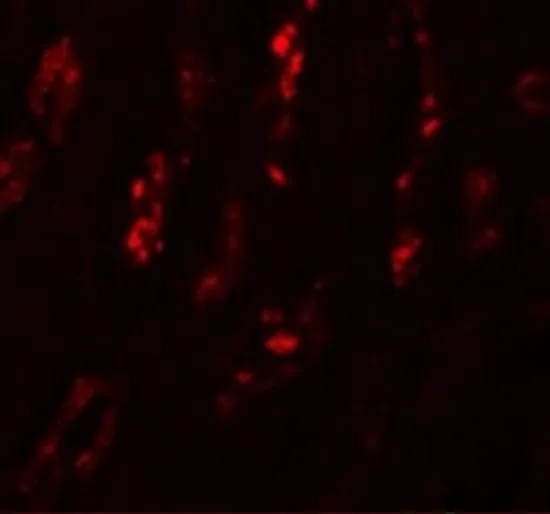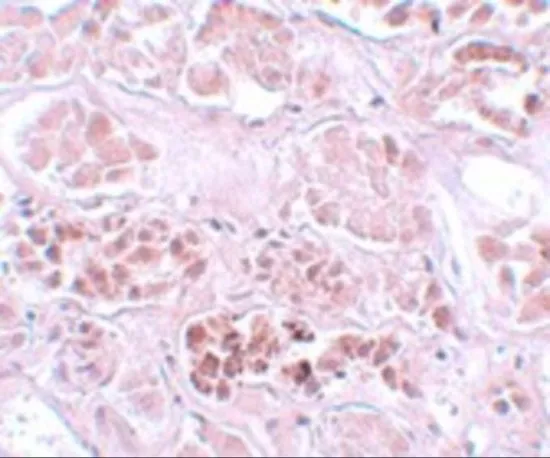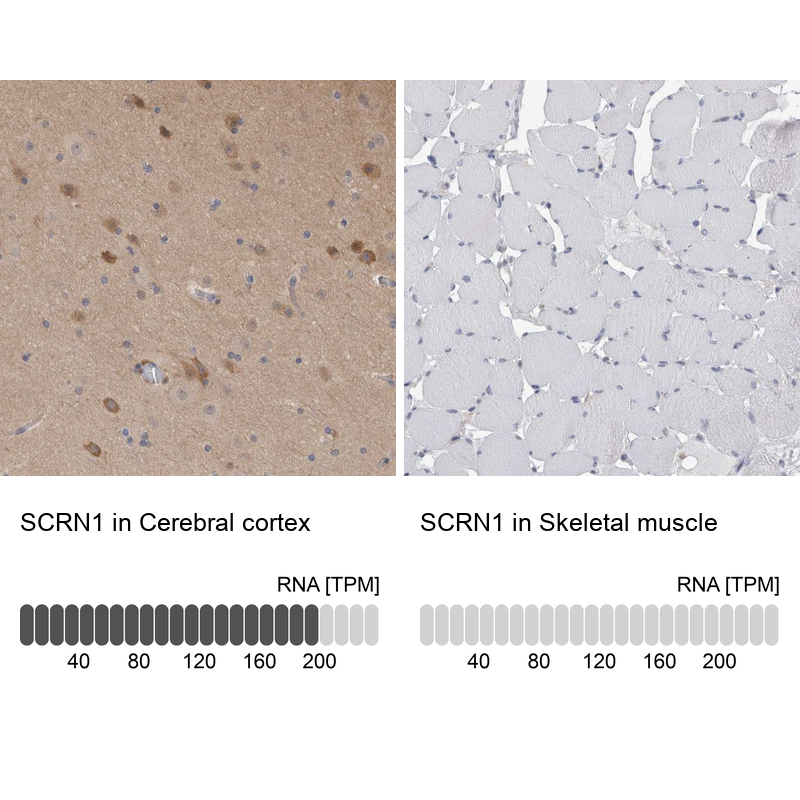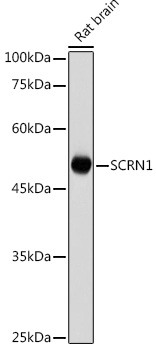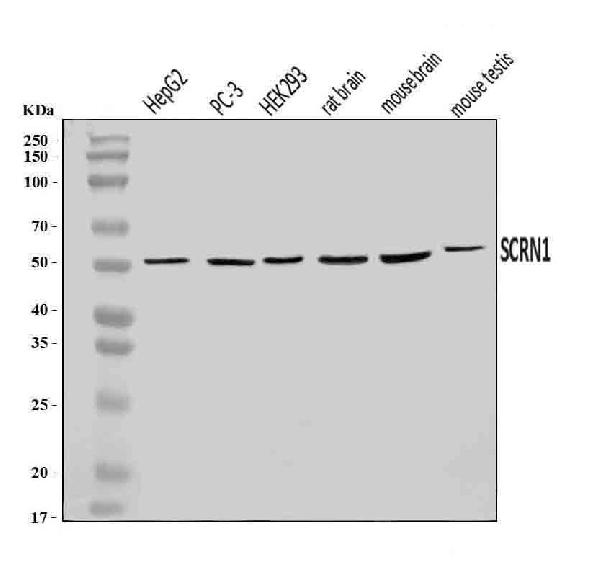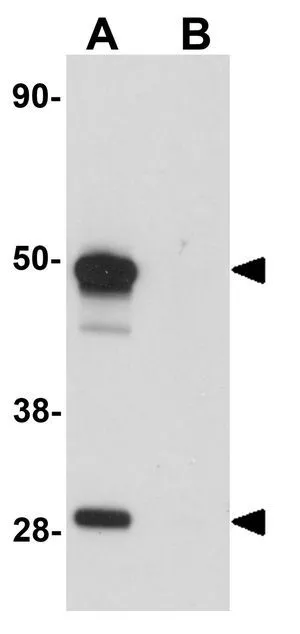
WB analysis of human kidney tissue lysate in (A) the absence and (B) the presence of blocking peptide using GTX85172 SCRN1 antibody. Working concentration : 1 μg/ml
SCRN1 antibody
GTX85172
ApplicationsWestern Blot, ELISA, ImmunoHistoChemistry, ImmunoHistoChemistry Paraffin
Product group Antibodies
ReactivityHuman, Mouse, Rat
TargetSCRN1
Overview
- SupplierGeneTex
- Product NameSCRN1 antibody
- Delivery Days Customer9
- Application Supplier NoteWB: 1 microg/mL. IHC-P: 5-20microg/mL. *Optimal dilutions/concentrations should be determined by the researcher.Not tested in other applications.
- ApplicationsWestern Blot, ELISA, ImmunoHistoChemistry, ImmunoHistoChemistry Paraffin
- CertificationResearch Use Only
- ClonalityPolyclonal
- Concentration1 mg/ml
- ConjugateUnconjugated
- Gene ID9805
- Target nameSCRN1
- Target descriptionsecernin 1
- Target synonymsSES1, secernin-1
- HostRabbit
- IsotypeIgG
- Protein IDQ12765
- Protein NameSecernin-1
- Scientific DescriptionSCRN1 was first identified as a cytosolic protein that is involved in the regulation of exocytosis from peritoneal mast cells. More recent studies have shown that SCRN1 expression is upregulated in gastric cancer cell lines and may possess epitopes that could function as tumor-associated antigens, potentially providing targets for cancer vaccines in the treatment of gastric cancers. Another report indicates that decreased expression of SCRN1 via RNAi expression resulted in significantly lower rates of cell growth in colorectal cancer cell lines, and increased SCRN1 expression in patients with colorectal cancer correlated with poor prognosis, suggesting that SCRN1 may also be involved in the regulation of cell growth and might be useful as a prognostic tool.
- ReactivityHuman, Mouse, Rat
- Storage Instruction-20°C or -80°C,2°C to 8°C
- UNSPSC12352203
References
- Conde-Rubio MDC, Mylonas R, Widmann C. The proteolytic landscape of cells exposed to non-lethal stresses is shaped by executioner caspases. Cell Death Discov. 2021,7(1):164. doi: 10.1038/s41420-021-00539-4Read this paper

